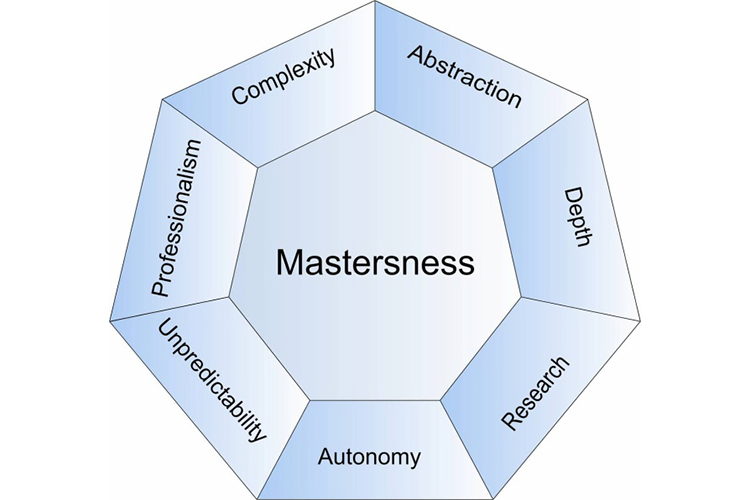Studying at postgraduate masters level
What does it mean to study at this level?
Programmes taught at postgraduate level study in the UK are subject to external benchmarks set by the Quality Assurance Agency (QAA). One of the core philosophies underpinning postgraduate level study is 'Mastersness'. At the heart of being a master is the ability to think critically and to critically evaluate concepts.

The following are some of the ways that 'Mastersness' manifests itself:
- level of excellence required for admission/entry to postgraduate programmes
- student knowledge acquisition on their chosen programme of study
- level and nature of assessment
- student achievement during assessment
- requirement for leading edge research to be integrated into teaching
- student skill attainment and employability.
As a basic guideline, you will be expected to demonstrate mastery of the following skills and knowledge by the time you have finished your postgraduate level study:
- critical thinking and creativity
- organisation of information and skills related to the acquisition of knowledge including scanning and organising data and abstracting meaning from information
- analysis, synthesis and appraisal skills
- an ability to identify assumptions and to evaluate evidence, detect false logic or reasoning, identify implicit values, define terms adequately and generalise appropriately
- problem solving and decision making skills
- ability to work effectively in multicultural teams and awareness of individual strengths in group settings
- ethics and value judgement
- self-awareness, as a researcher, that is, the application of critical evaluation to your own underlying methodological assumptions, as well as the methods and techniques used. This requires you to be aware of your own philosophical position with regard to research.
- the ability to reflect on your studies and work toward becoming a reflexive professional.